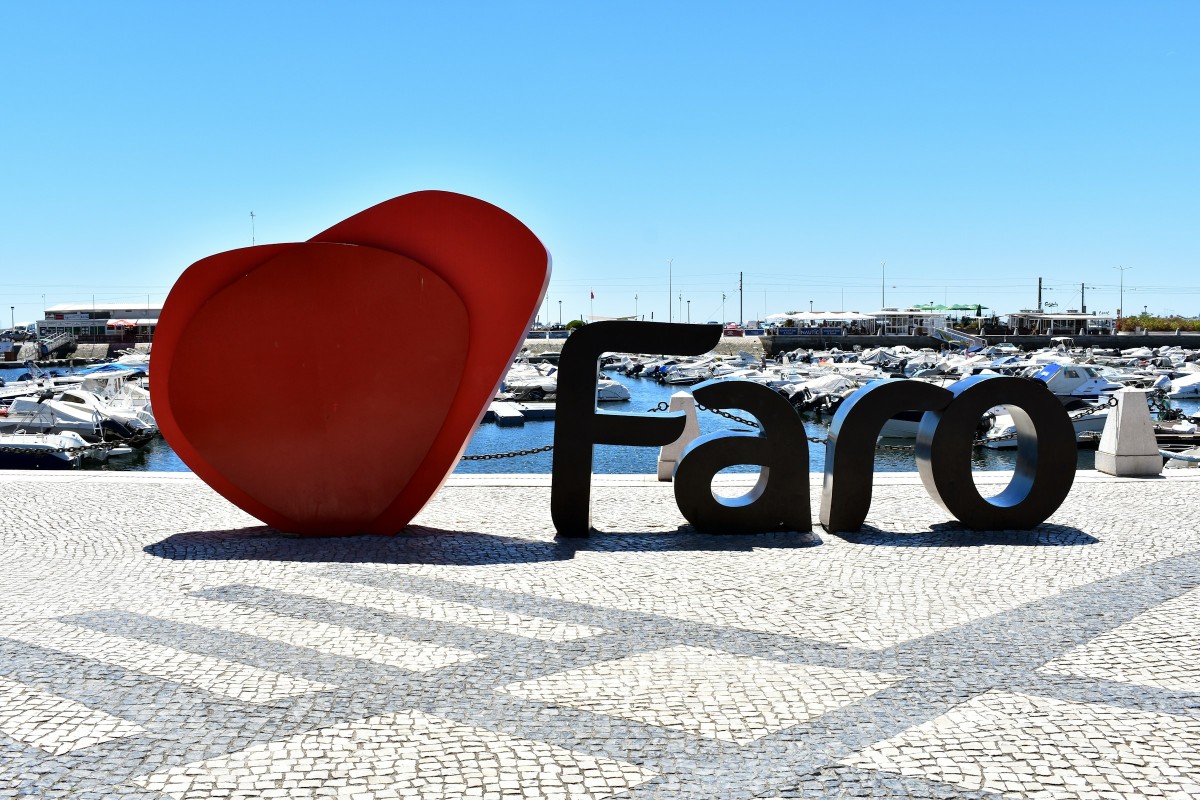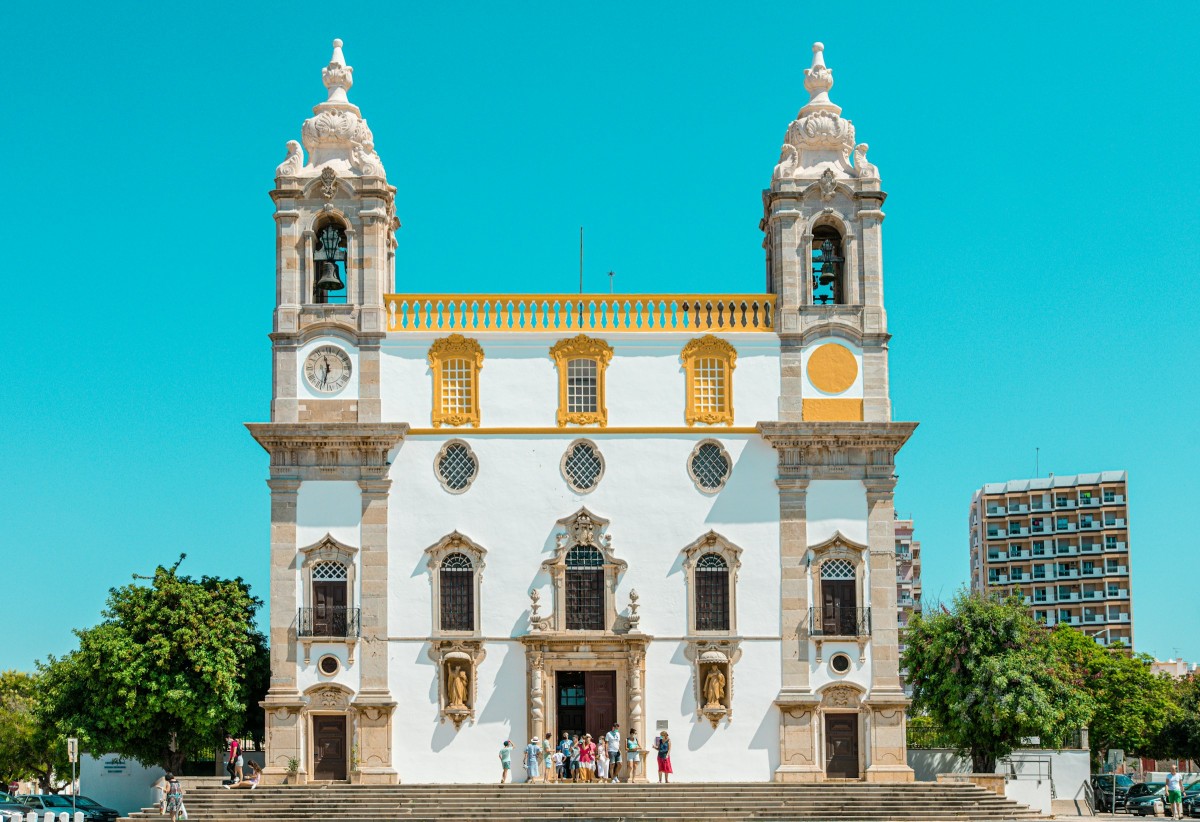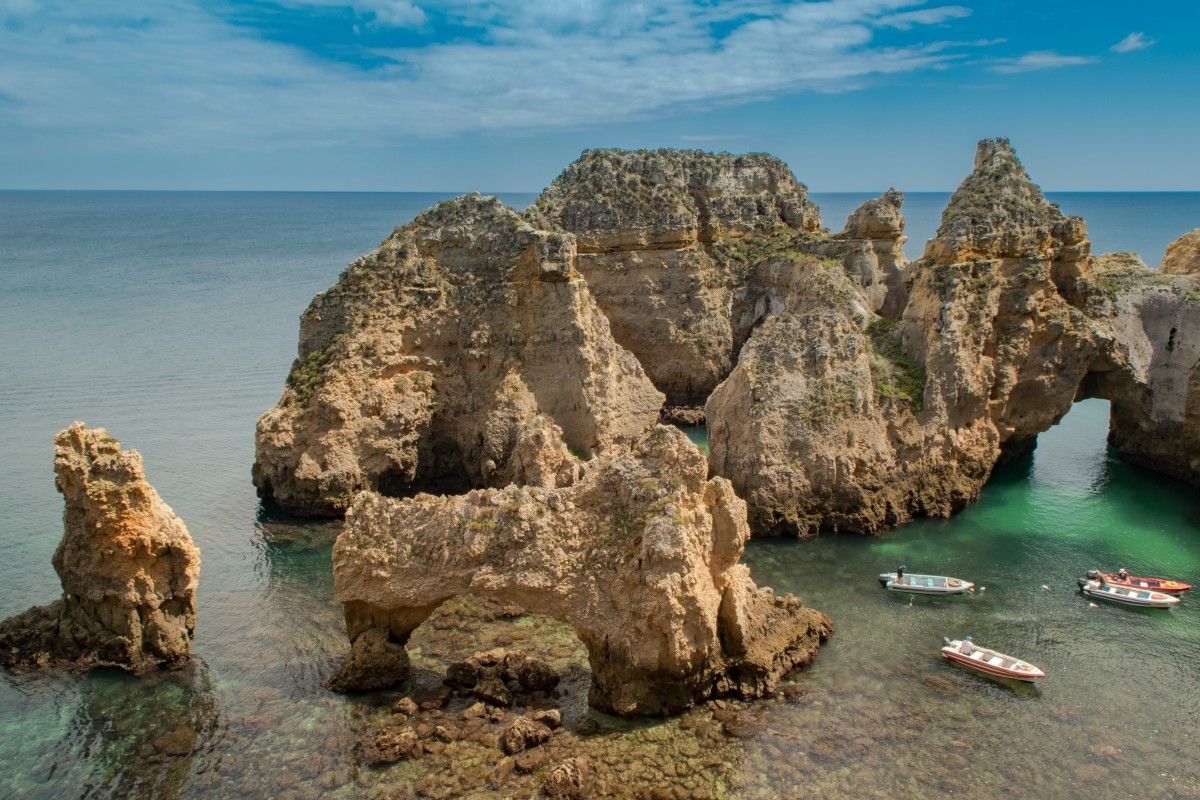
Living in Faro means easing into the laid‑back capital of the Algarve, where a compact old town meets the lagoon. With a population of around 60,000, life feels refreshingly local. It’s sunny, walkable and well connected, with cafés, markets and a gentle year‑round buzz that’s easy to settle into.
Living in Faro: pros and cons

Life in Faro suits anyone who likes a slower rhythm by the water, with easy airport links and proper sunshine, though there are a few quirks to weigh up.
Some of the pros of life in Faro include:
- Year-round outdoors: mild winters and sea breezes, with plenty of chances for walking, cycling, birdwatching and paddleboarding.
- Compact and convenient: a walkable centre, short commutes, and Faro Airport minutes away for quick hops around Europe.
- Calm and safe feel: a laid‑back city with a lived‑in historic core, decent healthcare and a growing international crowd.
Some of the cons of life in Faro include:
- Summer squeeze: tourist season brings busier beaches, traffic around the island bridge and higher prices near the coast.
- Small‑city limits: fewer cultural events and nightlife than Lisbon or Porto, and a narrower job market outside tourism, services and the university.
Best place to live in Faro

Historic centre
Compact and walkable, with cobbled lanes, tiled townhouses and cafés around Praça da Liberdade and the marina. Apartments tend to be older, some with gorgeous azulejos and high ceilings, others in need of TLC.
Expats who want a car‑free life and easy airport access settle here, as do digital workers who like being near the station.
Montenegro and Gambelas
Here you get low-rise villas, townhouses and newer flats, supermarkets and easier parking. You’re close to the University of the Algarve and Faro Airport, so there’s a mixed crowd of students, lecturers, families and long-stay expats.
Good pick if you want space, balconies and a more suburban pace without leaving the city.
Near Faro Island
Here you're right on the lagoon and the Atlantic, inside the Ria Formosa Natural Park. Stock is limited and seasonal demand is high; some homes see heavier summer traffic, and salt air plus wind can be hard on buildings.
It suits water lovers and year-round walkers who don’t mind a quieter off-season and occasional airport noise, depending on wind.
Living in Faro: cost of living
Day‑to‑day costs in Faro are friendly by Portuguese standards. According to Numbeo, a cheap main course is about €12, a mid‑range meal for two around €40, a beer out costs €3 and a cappuccino at a café roughly €1.80.
The regional bus pass is €40 per month for unlimited rides across Lagos, Faro, Albufeira and beyond, and basic utilities for an 85 m² flat hover near €120 a month.
For housing, as of October 2025, property prices in Faro averaged around €3,180 per m² according to idealista’s price evolution. Rent prices in Faro are roughly €15 per m² per month in July 2025, so an 80 m² flat would typically cost about €1,200 per month.
Compared with Lisbon, housing and eating out are cheaper, and costs are a shade below Porto as well. Against other Western European coastal cities, Faro sits on the affordable side, though summer demand can nudge prices up.

Living in Faro as a foreigner
Faro has a small, friendly international crowd anchored by the university and the walkable old town. You’ll meet long‑term expats and remote workers through InterNations Algarve and Algarve Digital Nomads, plus easygoing language‑exchange meetups in cafés.
Culture ticks along year‑round: Festival F takes over the walled city each September, while Teatro das Figuras hosts touring concerts and dance, and indie nights pop up at ARCM and Os Artistas.
If you’re sporty, Clube Naval de Faro gets people sailing or kayaking, and matchdays with SC Farense are a good way to feel part of things.
On services, families rely on solid public schools in Faro, with international options nearby like Vilamoura International School and Nobel Algarve British International School.
Healthcare is anchored by the public Hospital de Faro (CHUA) with emergency care, plus private options such as Hospital Particular do Algarve – Gambelas and a spread of clinics.

Stay in the know about living in Portugal as a foreigner—get our weekly newsletter for the latest travel, legal, and lifestyle news.
